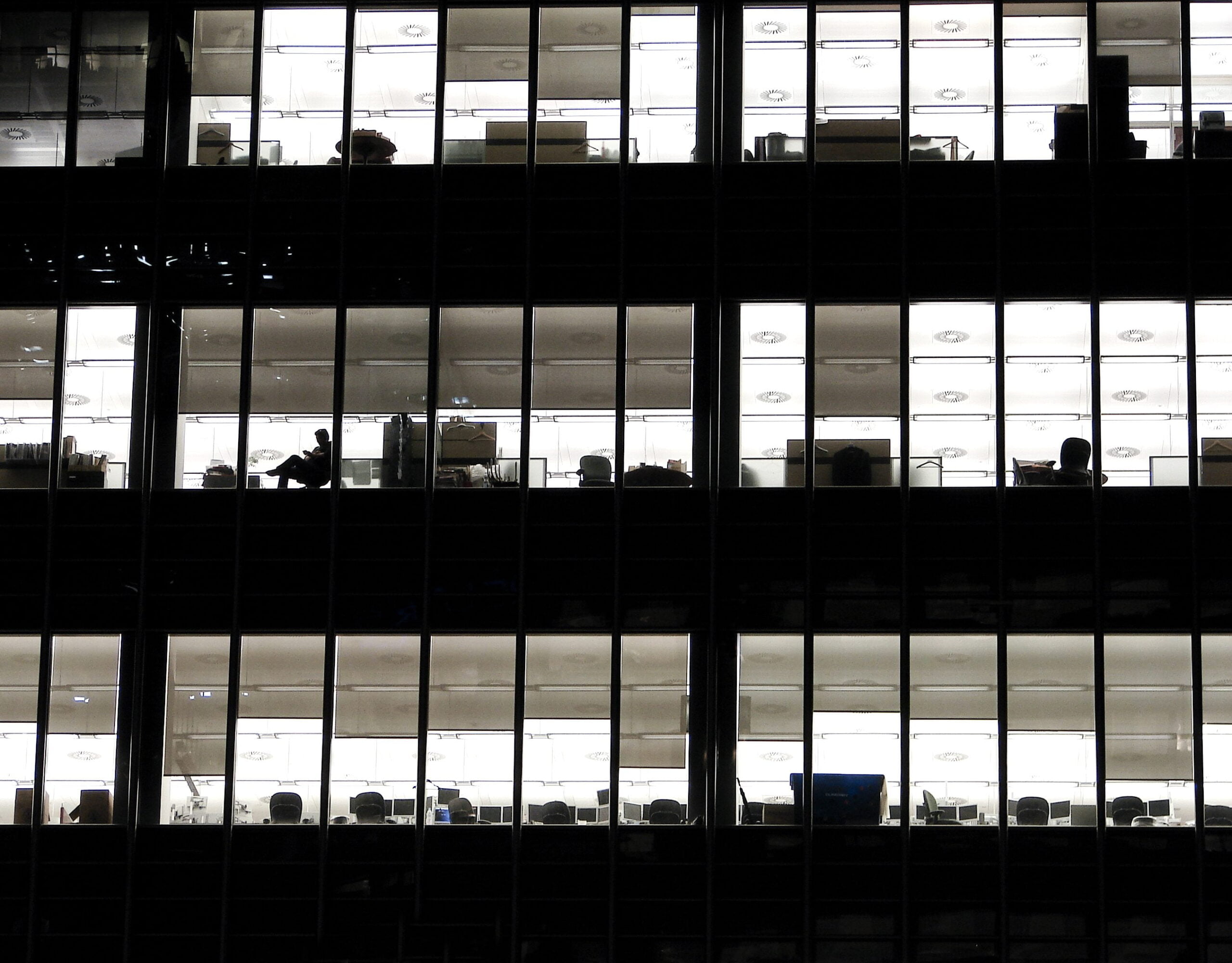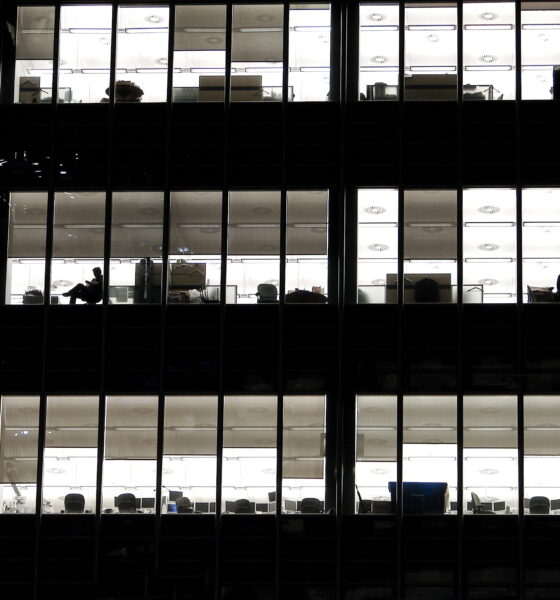

Economy
5×15’s Capitalism and its Discontents, London – review
Francesca Baker took a trip to Notting Hill last week for a night of unscripted true stories of “passion, obsession and adventure“.
5×15. Not 75, but an evening of intellect and inspiration. A brilliant concept, developed by journalist Rosie Boycott, her daughter Daisy Leitch and the literary events promoter Eleanor O’Keeffe, the event is a highly relevant literary smorgasbord.
Five speakers, 15 minutes each. Sometimes there is no connection between the orators at all; the only link being that these are five interesting people passionate about a topic and wanting to share it with the audience.
Sometimes there is an overarching theme, carefully curated. Tonight, it was one that resonates with Blue & Green Tomorrow. Five speakers, picked by George Monbiot – author, Guardian columnist and visiting professor at the School of the Built Environment at Oxford Brooks University – discussing their take on the topic, Capitalism and its Discontents.
This topic resonates not because Blue & Green Tomorrow is a communist operation or anything like it, but because both the magazine and the speakers share the view that just because we run our society in a certain way, that does not make it the right way, and accepted practices need to be questioned for their ethical and sustainable outlook.
There is a general belief that capitalism is correct, mainly because it generates wealth. But this wealth has costs. For a start, this wealth is not evenly spread. Danny Dorling, Halford Mackinder professor of geography at the University of Oxford and the founder of worldmapper.org, a website visually demonstrating who has the most and the least in the world, was vehement about this, visually demonstrating his points with graphs. But it was Jack Monroe, the single mum who started her blog A Girl Called Jack, who most personably and emotionally portrayed this.
Monroe started publishing cheap and cheerful meal ideas on her blog after benefit cuts, poor housing and job difficulties forced her to feed herself and her son on only £10 a week: a sum which, as she points out, is “lower than you ever imagined you could live on“. Now a political activist and an ambassador for Oxfam, her first-hand evidence of the widespread necessity of food banks, and the wasteful nature of so many, is a result, she believes, of the inequalities of a capitalist system which sees poverty as “inevitable“.
Something else capitalism neglects is its reliance on people and the planet. The economy does not sit separately from its environment, which includes natural resources, social exchange and unpaid workers, as well as the push and pull of micro and macro monetary systems.
This belief has seen economist Kate Raworth develop the concept of “doughnut” economics. A senior visiting research associate and lecturer at Oxford University’s Environmental Change Institute, she focuses on the rewriting of economics to reflect this century’s realities and challenges. The doughnut system stresses the fusion of social and planetary boundaries. She believes we need an economic system that focuses on the values of people, not the values of money.
This view was shared by Tim Jackson, currently professor of sustainable development at the University of Surrey and director of the Defra/ESRC-funded Sustainable Lifestyles Research Group. He was economics commissioner on the UK Sustainable Development Commission from 2004-11, a role culminating in the publication of Prosperity without Growth.
This work, and his talk tonight, focused on economics for a finite planet, and how consumption and production can be achieved with social, environmental, and economic sustainability and stability achieved. He too did not have a specific agenda for curing the economy, but instead focused on changing the way we think.
Wealth does not necessarily make people happier or healthier, and we need to alter our view on what prosperity means. We need to not look at GNP and rising stock markets as a measure of success, but relationships, nature and wellbeing.
Not a bad idea, and evidently something that appealed to the curator Monbiot. As the final speaker, he spoke eloquently and convincingly about a topic I have written on before – whether we need to consider the environment in economic terms in order to make people take interest. His take was a vehement “no“. By doing so and using the term ‘natural capital’, he stated that we were playing into this capitalist agenda, and putting a price on something that can not be valued in such terms – nature.
The night was never going to force an audience of affluent people, who had spent £20 on a ticket to sit in a converted church in Notting Hill, that capitalism is innately wrong, but the speakers may have caused thought. Which is what they were there to do.
Dorling’s final sentence was this: “How we think about each other, and how we think about the world, is going to change.” For sustainability – socially, economically, and environmentally – it has to.
Francesca Baker is curious about life and enjoys writing about it. A freelance journalist, event organiser, and minor marketing whizz, she has plenty of ideas, and likes to share them. She writes about music, literature, life, travel, art, London, and other general musings, and organises events that contain at least one of the above. You can find out more at www.andsoshethinks.co.uk.
Photo: constantin jurcut via freeimages
 Further reading:
Further reading:
Prince Charles: capitalism should serve humanity’s ‘interests and concerns’
Mark Carney on inclusive capitalism: ‘finance has to be trusted’
Business needs to focus on the long-term to restore faith in capitalism


 Environment12 months ago
Environment12 months agoAre Polymer Banknotes: an Eco-Friendly Trend or a Groundswell?

 Features11 months ago
Features11 months agoEco-Friendly Cryptocurrencies: Sustainable Investment Choices

 Features12 months ago
Features12 months agoEco-Friendly Crypto Traders Must Find the Right Exchange

 Energy11 months ago
Energy11 months agoThe Growing Role of Solar Panels in Ireland’s Energy Future




























